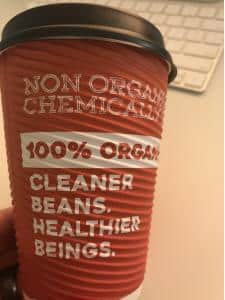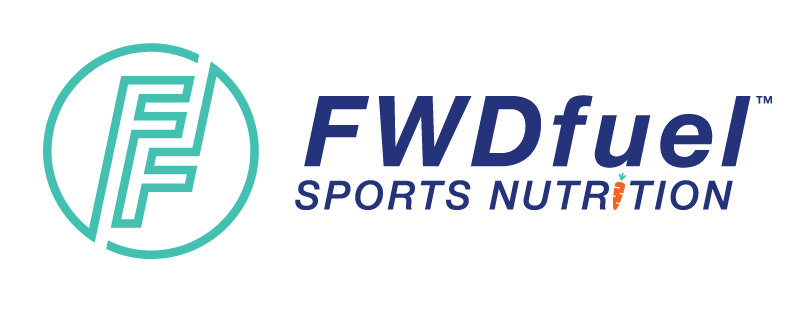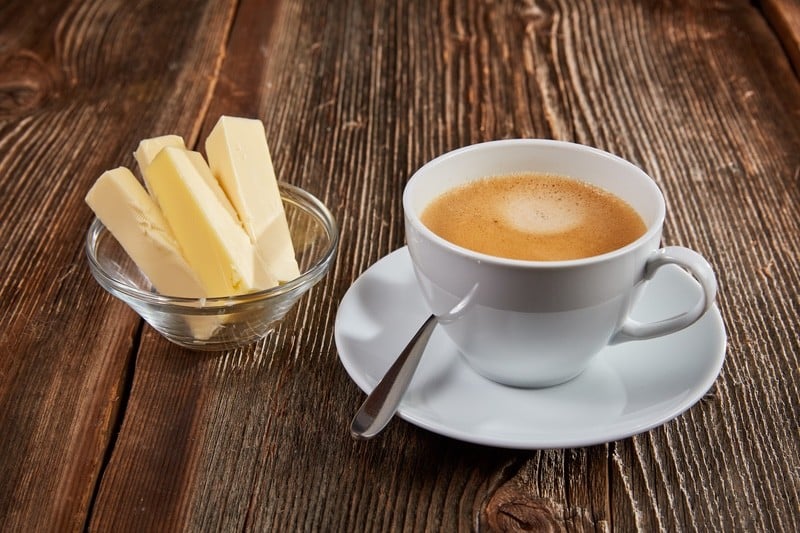People ask us all the time, what is Bulletproof Coffee, and should I be drinking it?
We understand that your first impression may be that its some crazy fad of putting butter in coffee. Yes, that does sound kind of crazy and there is some truth to that statement.
However, once we outline the history of Bulletproof Coffee there may be some debatable health benefits, you will likely at least want to try a cup. Even more, learning how in a slightly different form, it has been a tried and true beverage consumed for over a thousand years certainly gives it a bit more credibility.
What is Bulletproof Coffee?
If you haven’t already heard someone talking about it over the past 5 years, you likely will soon. It continues to grow and its trend does not seem to show any signs of slowing down. The concept of Bulletproof Coffee is a creation by entrepreneur and “biohacker” David Asprey. Its a radical change from the prior low-fat or no-fat trends of the past and may have more research to support it to sustain itself in the long run.
Long story short, it is a coffee concoction that’s meant to combine both your morning coffee and breakfast into one. It is said to help boost energy and brain function along with suppressing hunger. The claims from the Bulletproof Coffee blog goes as far as stating you will have “a sharper brain”, “a happier outlook”, “better physical performance and less fat”. Some of these claims simply come from the research on caffeine, MCT Oil, and coffee that they have extracted to support Bulletproof coffee. I currently do not know of any research specifically on Bulletproof Coffee, or claiming such benefits of butter. Regardless of their claims, it’s worth diving into its origins and the real research.
You Need to Know the History of Bulletproof Coffee…
The concept of his coffee concoction stemmed from a trip to Tibet in 2004 by Asprey. The aim of his trip was to learn how to meditate. During his trip, he met some locals who drank and shared some Butter Tea which is a staple of the people in Tibet. He apparently went from fatigued to feeling great after drinking it, driving him to figure out why and how, and ponder a way to create and market it in the US>
Made from tea, yak butter, salt, and water, Butter Tea is commonly drunk before the people head to work and it is common to share with guests. It is said the beverage is a staple in Tibet due to its ability to provide plenty of slow-burning calories for work in the high altitude as well as protection against chapped lips. It is also hypothesized that the beverage may have become a staple due to the salt helping prevent dehydration and the diuretic effects of tea and caffeine.[1]
David first posted his own version of the beverage named bulletproof coffee on his blog in 2009. So, it likely took a few years of trial and error until he perfected his recipe. From browsing articles and doing analysis, there seems likely are a few specific reasons why he chose the exact formula he created. He provided some sound rationale for the specific recipe he posted though it seems he stretched a lot of things to appeal to his ideal marketing angles. There was a clear intent to market and profit from this creation. So, it is important to keep in mind some things may have been stretched a bit to hype up his product.
The Fuel in Bulletproof Coffee
There are 3 main components to Aspry’s original bulletproof coffee:
- low mold or mold-free organic coffee beans or Bulletproof brand Bulletproof Coffee Beans
- 1 teaspoon to 2 tablespoons MCT oil or Bulletproof brand Brain Octane Oil
- 1-2 tablespoons of unsalted grass-fed butter or grass-fed ghee (clarified butter that is absent of whey or lactose)
We will dive into the research and thought behind each ingredient
Getting Down and Dirty with Mold Free Organic Coffee Beans
According to the bulletproof blog, the specific type of coffee bean was chosen due to, “Crappy coffee can sap your energy and hurt your performance.”
Is there any research on this?
Very little. However, I’m not one that needs a piece of research for everything I do to determine if it is a good or bad idea. Some people say, “How do you know eating XYZ is bad? There’s no research on it!” To that, I would say, “Because I don’t need research to help make every decision. Logic can often lead you to make better choices.”
However, let’s examine why Asprey suggests non-organic coffee could be contributing to fatigue or performance fog.
When researching coffee and if there are harmful chemicals added to it or used during processing there is little to no research available (at least that I can find). However, when you consider how large a business coffee is, its no surprise. The coffee industry is worth a lot of $$$$. Its one of the most traded crops in the world. Do you think big brother is going to let a bunch of negative articles be spread all over the internet hurting sales? Probably not.
To do high-quality research often takes a lot of money. Much of the research we have in health care is funded by pharmaceuticals and hospital systems that have something to gain by doing great research. Is there anything for any big business to gain by doing extensive research analyzing if there are harmful chemicals involved in the coffee growth, manufacturing, and distribution process? Probably not.
It unlikely a pharmaceutical company or hospital sees mild fatigue directly related to coffee as such a clear problem that they should do research so they can profit from treatment. So, I doubt we’re going to uncover any high-quality, in-depth, extravagant medical research detailing exactly what harmful chemicals may be leaching into our cup ‘o joe in conventional coffee. It may be a bit of a challenge to exactly pinpoint all the harmful stuff that may be in there, but lucky for us there are a lot of highly motivated and good-hearted people out there who have done some great investigating.
Some searching on the harmful chemicals in coffee will quickly lead you to many, many pages with claims that state, “conventional coffee is the most heavily chemically treated foods in the world. It is steeped in synthetic fertilizers, pesticides, herbicides, fungicides, and insecticides.” [5]
So, even if you don’t like drinking your coffee bulletproof style, I would encourage you to consider drinking organic vs traditional coffee. I think the word is growing that conventional coffee may be harmful. Proof of this became more clear to me recently when I came across an amazing to-go cup when I was at one of my favorite restaurants in the CLE, Townhall. I ordered some bone broth, and this is the stylish cup it came in:



“NON ORGANIC COFFEE IS AMONG THE MOST CHEMICALLY TREATED FOODS IN THE WORLD. 100% ORGANIC CLEANER BEANS. HEALTHIER BEINGS.”
It seems like every time I go to this restaurant, I find a new reason to love it.
If you’re an ambitious athlete and health nut, how can you not? This restaurant already had my #1 spot favorite restaurants, (Maybe tied with Sa Foradada in Mallorca!), but it seems every time I go I find a new reason to love this restaurant more.
Just like I can determine without a research study that eating food that has been sitting in a trash can for a week is probably a bad idea, I can figure that chemically filled, moldy, inorganic coffee may not be the best idea if you’re looking for the optimal energy and focus. Furthermore, while there is little to no research stating that moldy coffee causes fatigue or undesirable symptoms, it is well known that many people have difficulty detoxing mold. Many experience fatigue, fog, and other effects when exposed to mold on a regular basis while others tolerate it just fine. So, if you’re trying to fight fatigue or are simply trying to be your best and most energetic self, choosing quality organic products is likely a good idea.
The Skinny on MCT Oil
Don’t get me wrong, I do love having research to help guide me to making better decisions. I just don’t rely on it to make every decision.
Fortunately for us, there is some strong research to support the use of MCT oil.
First, what the heck is MCT oil? MCT stands for medium-chain triglycerides. Basically there are a lot of different forms of fat. Some are long-chain, some medium-chain, some short-chain. Long-chain fats consist of a molecular structure of 14 or more molecules chained together. Examples of Long-chain fats include the fats found in most oils such as olive oil, fish, meats, or avocados.(1) MCT is often found in small proportions in different foods derived from milk including cows milk, cheese, yogurt, and most notably coconut milk and coconut oil. The MCT oil you buy is often derived from coconut oil.
Here are a few more specifics on how MCT oil may be beneficial according to the research:
- MCT oil can increase satiety (feeling of being full) which helps reduce food intake. [4,5]
- MCT can increase energy expenditure [4]
- Some claim MCT oil may be Thermogenic though the research on this claim is mixed, there is some support that a meal with medium chain triglycerides have a greater effect on diet-induced thermogenesis than long-chain triglycerides [7,8]
Yes, We’re Talking Butter Here and Grass-Fed Matters
Having meat or butter (or ghee) that is “grass-fed” has been quite a buzz lately. Like usual, we have to ask, is there some credibility to this claim or is it just an over-hyped trend? Especially when it comes to butter, isn’t it just a hunk of fat anyways?
When digging into the research, it is clear why having grass-fed butter matters. Comparing butter from pasture/grass-fed cows versus cows housed indoor and fed a manufactured mix of grass, maize, and “concentrates” shows vast differences with pasture fed cows having significantly better quality. A few of the highlights include:

- Significantly better nutritional value from grass-fed cows
- Lower thrombogenicity index (likelihood of something to cause clotting) in pasture fed cows
- Higher β-Carotene (the precursor to Vitamin A)
- Higher concentrations of protein, fat, casein, and saturated fatty acids, and unsaturated fatty acids (7,8)
Clearly, adding butter to a beverage is not a new concept. David Asprey’s observation of how the beverage was a powerful tool for fueling the active Tibetan people as well as his hiking shows some great instincts. However, tweaking the beverage to appeal to America’s taste and obsession with coffee (as well as his own) was his best idea. Would this have even been as successful if he tried to create and market his product with tea? No chance. I applaud his entrepreneurship.
Fueling Explosive Growth
In addition to making a play off of America’s obsession with coffee, Asprey chose some excellent angles for his marketing. Appealing to America’s continued addiction with energy drinks and desire to increase focus (i.e. Redbull, Monster, 5-hour energy) along with a need for weight loss (see every fad diet, program, and supplement ever), he made a play right at the heart of America’s greatest obsessions and needs.
How did we end up here? Well, when America decided that fat was a bad thing so every food company created low-fat and no-fat products, America became addicted to sugar. This resulted in a lack of control of blood sugar, fatigue, and weight gain. So, thus far America’s answer (similar to our health systems) has been to cover up the symptom instead of fixing the root cause. Cover up the fatigue with coffee or energy drinks, and treat the mid-afternoon lull due to adrenal fatigue or blood sugar fluctuation with another dose of your favorite energy fix. Yes, that is how we function as a country, forget about fixing the root cause, simply put a band-aid over it and look the other way.
How about trying to fix the root cause of the problem? The answer to America’s continued issue with fatigue was found in Bulletproof Coffee. Not only did it address America’s need for energy with coffee, but helped change America’s obsession with carbohydrates and sugar for breakfast by substituting slow-burning, healthy fats that stabilization of blood sugar for decreased hunger and improved energy as well as focus. Our country has been needing this for almost three decades now!
Basically, the David Asprey was given an underhand softball toss opportunity to hit a home run. **Many people could get the same effect by removing the massive amount of frozen fruit they put in their morning protein smoothy and adding some full-fat canned coconut milk or avocado oil instead. Or, they could have 3 eggs and half a slice of Avocado. There are many many alternatives to the standard American breakfast of fruit, juices, cereals, bagels, or coffee with sugar that could have lead many people to achieve similar results as a change to consuming Bulletproof Coffee. However, what would most American’s rather have, eggs and an avocado for breakfast or more coffee and caffeine?
To add fuel to the trend, Asprey has been fortunate to receive some great press and celebrity endorsement. Many, and I mean many, have endorsed Bulletproof Coffee such as when Jimmy Fallon mentioned it on the night show in 2014, Harry Styles stated it hoped him from getting hungry in 2015, or more recently when actress Busy Philipps claimed she was “obsessed” with it. Nothing like a repeated celebrity endorsement to help you start and sustain a trend!
More Research is Needed and Individual Needs Vary
Hopefully the next time someone asks you, what is Bulletproof Coffe? You will be armed with understanding it may be a part fad, but many of the reasons why it has caught fire and continues to be growing. Not only will you be prepared to explain the ingredients, but you will be able to discuss the science behind it. However, it is important to note there is a strong push back on Bulletproof Coffee in the health community, and for good reason.
Strong research has come out demonstrating saturated fat is really not as bad as we thought it was and is not the main cause of heart disease like it was once claimed. However, we have to think about whether starting our day on a regular basis with 20-40 grams of saturated fat is really a good idea. This is where I think a functional nutrition approach is a key to figuring out the answer: it depends. Does your GI digest fats well? What is your current cholesterol? What is your overall energy expenditure and is your body accustomed to burning fat as a fuel source? Do you tolerate caffeine well? Should you be having coffee at all?
There are a lot of questions to be asked and hopefully, someone is doing some research on the use of Bulletproof Coffee. If you’re simply interested in reading more research debating the benefits of drinking coffee, check out the post Is Coffee Good or Bad For You? What Does Science Say About? by Walton Holcomb. Its an interesting read, especially if you’re looking for some reasons to drink coffee.
For me personally, I drink my own alternative to bulletproof coffee that is even better. Kylene has taught me some amazing tricks with MCT oil and I will be sharing those thoughts in a future post that I think will rock your world.
The benefits of coffee are likely going to continue to be highly debatable. Depending on your DNA, blood type, gut type, and so on, coffee could be really beneficial or really terrible for you. It will never be an absolute good or bad for everyone. If you’re like me and don’t produce the enzyme to metabolize caffeine then well, it simply destroys you by not allowing you to sleep for several days. So, take the research with a grain of salt and remember that research guides us but in the end everyone is unique.
Do you drink Bulletproof Coffee? What has been your experience so far? Do you make your own variations? Share your thoughts in the comments, we would love to hear from you! References:
- https://en.wikipedia.org/wiki/Butter_tea
- Brown E. What is a long chain fatty acid. Available at: http://healthyeating.sfgate.com/longchain-fatty-acid-9597.html.
- St-Onge MP, Jones PJ. Physiological Effects of Medium Chain Triglycerides: Potential Agents in the Prevention of Obesity. J. Nutr. 2002;132(2):329-332.
- Kinsella, R, Maher T, Clegg ME. Coconut Oil has Less Satiating Properties Than Medium Chan Trigylceride Oil. Physiology & Behavior. 2017;179:422-426.
- Fiore S. Organic vs. Conventional Coffee. Available at: http://blog.equalexchange.coop/organic-vs-conventional-coffee/.
- Westerterp KR. Diet induced thermogenesis. Nutr Metab. 2004;1:1-5.
- Quatela A, Callister R, Patterson A, Macdonald L. The energy content and composition of meals consumed after an overnight fast and their effects on diet induced thermogenesis: A systematic review, meta-analysis and meta-regressions. Nutrients. 2016;8(11):1-30.
- O’Callaghan TF, Faulkner H, McAuliffe S, et al. Quality characteristics, chemical composition, and sensory properties of butter from cows on pasture versus indoor feeding systems. Journal of Dairy Science. 2016;12(99):9441-9460.
- O’Callaghan TF, Hennessy D, McAuliffe S, et al. Effect of pasture versus indoor feeding systems on raw milk composition and quality over an entire lactation. Journal of Dairy Science. 2016;12(99):9424-9440.
- Onghena M, Hoeck EV, Negreira N, Quirynen. Evaluation of the migration of chemicals from baby bottles under standardized and duration testing conditions. Journal of Food Additives & Contaminants.









Trackbacks/Pingbacks